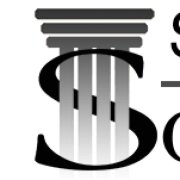Best General Litigation Lawyers in Sanremo
Share your needs with us, get contacted by law firms.
Free. Takes 2 min.
List of the best lawyers in Sanremo, Italy
About Litigation Law in Sanremo, Italy
Litigation in Sanremo, Italy, refers to the legal process of resolving disputes between individuals, businesses, or entities in local courts. This includes both civil and commercial matters, such as contract disputes, property issues, inheritance cases, and other private law disagreements. Sanremo operates under the broader Italian civil law system, which is characterized by written statutes and codes, notably the Italian Civil Code and related procedural laws. Local tribunals handle most litigation cases, and specialized courts may oversee specific subjects, such as labor or administrative disputes.
Why You May Need a Lawyer
There are several common situations in Sanremo where legal assistance in litigation becomes crucial. These can include:
- Disagreements over property ownership or boundaries
- Inheritance and succession disputes
- Breach of contract or unpaid debts
- Business disputes between partners or with customers
- Disputes with landlords or tenants
- Personal injury claims and compensation
- Consumer rights disputes
Lawyers play a vital role in helping individuals and businesses understand their rights, navigate the complex Italian legal system, draft documents, negotiate settlements, and represent them in court if necessary.
Local Laws Overview
Litigation in Sanremo is governed by Italian national law, primarily the Italian Civil Code (Codice Civile) and the Code of Civil Procedure (Codice di Procedura Civile). Key aspects include:
- Filing a Lawsuit: The process begins with a written summons (atto di citazione) served to the opposing party and filed in the relevant court (Tribunale di Sanremo for most civil matters).
- Mediation Requirements: In some cases (e.g., family, condominium, lease, banking, and insurance disputes), attempting mediation or alternative dispute resolution is mandatory before going to court.
- Legal Representation: While small claims may allow self-representation, most cases require a licensed Italian lawyer (avvocato) to represent the parties.
- Procedural Timelines: Italian litigation can be lengthy, and adherence to formal deadlines for filing documents and appeals is strict.
- Court Fees and Costs: Fees are set by law and depend on the claim’s value, with the losing party typically responsible for both sides’ legal costs.
Local nuances, such as court schedules and practices, may also affect litigation in Sanremo. Lawyers with local experience can provide strategic advantages in navigating these details.
Frequently Asked Questions
What types of legal disputes are most common in Sanremo?
Property and real estate disagreements, inheritance issues, contract breaches, landlord-tenant conflicts, and business-related disputes are particularly common in Sanremo, given its tourist appeal and property market.
Do I need a local lawyer for litigation in Sanremo?
While not always legally required, hiring an avvocato based in or familiar with Sanremo provides valuable insights into local court practices and can improve case outcomes.
Can I represent myself in court?
For small claims (generally under €1,100), individuals may represent themselves, but in most civil litigation, especially for higher-value disputes, legal representation is mandatory.
What is the average duration of a civil lawsuit in Sanremo?
Litigation in Italy can be time-consuming, often taking one to three years for first-instance decisions, though timelines vary depending on complexity and caseload.
Is mediation or arbitration required before litigation?
For certain types of disputes (such as those involving condominiums, leases, banking, and family matters), an attempt at mediation is mandatory before filing a lawsuit.
How are legal costs determined?
Legal fees are partly regulated and depend on the claim’s value, complexity, and the lawyer’s experience. Generally, legal costs are recovered from the losing party, but this may not cover all expenses.
Can foreigners initiate litigation in Sanremo?
Yes, foreigners have the same rights to access the Italian judicial system and may pursue or defend litigation in Sanremo, though they will need a lawyer licensed in Italy.
How is evidence presented in Italian courts?
Most evidence is presented in written form, including contracts, correspondence, and expert reports. Witness testimony may also be allowed but is less central than in common law countries.
What if the opposing party doesn’t show up in court?
If properly notified, the court may proceed in the absence of the other party (in contumacia), and a default judgment can be entered.
How do I enforce a court decision in Sanremo?
Successful litigants can seek enforcement through the local bailiff (ufficiale giudiziario), who can seize assets, garnish wages, or take other actions as prescribed by law.
Additional Resources
Council of the Bar of Sanremo (Ordine degli Avvocati di Sanremo): The local professional body for lawyers, providing lists of qualified avvocati. Tribunale di Sanremo (Sanremo Court): The main civil court handling litigation cases. Mediation Bodies (Organismi di Mediazione): Local organizations accredited to conduct mandatory pre-litigation mediation. Consumer Associations: Groups such as Altroconsumo or ADICONSUM can provide support for consumer disputes. Comune di Sanremo - Legal Services: The municipal government may offer guidance on accessing legal assistance or public legal aid.
Next Steps
If you believe you require legal assistance with litigation in Sanremo, consider the following steps:
- Gather all relevant documents and evidence related to your potential dispute.
- Identify whether your dispute falls under areas requiring mandatory mediation before legal proceedings.
- Contact and consult with a qualified lawyer (avvocato) in Sanremo or the surrounding area for an initial assessment.
- If cost is a concern, inquire about eligibility for legal aid or pro bono services, especially for serious financial hardship.
- Follow your lawyer’s advice regarding further procedural steps, including documentation, negotiation, or court filings.
Taking early action and consulting a professional can improve your chances of a favorable resolution and help you navigate the Italian legal system with greater confidence.
Lawzana helps you find the best lawyers and law firms in Sanremo through a curated and pre-screened list of qualified legal professionals. Our platform offers rankings and detailed profiles of attorneys and law firms, allowing you to compare based on practice areas, including General Litigation, experience, and client feedback.
Each profile includes a description of the firm's areas of practice, client reviews, team members and partners, year of establishment, spoken languages, office locations, contact information, social media presence, and any published articles or resources. Most firms on our platform speak English and are experienced in both local and international legal matters.
Get a quote from top-rated law firms in Sanremo, Italy — quickly, securely, and without unnecessary hassle.
Disclaimer:
The information provided on this page is for general informational purposes only and does not constitute legal advice. While we strive to ensure the accuracy and relevance of the content, legal information may change over time, and interpretations of the law can vary. You should always consult with a qualified legal professional for advice specific to your situation.
We disclaim all liability for actions taken or not taken based on the content of this page. If you believe any information is incorrect or outdated, please contact us, and we will review and update it where appropriate.









